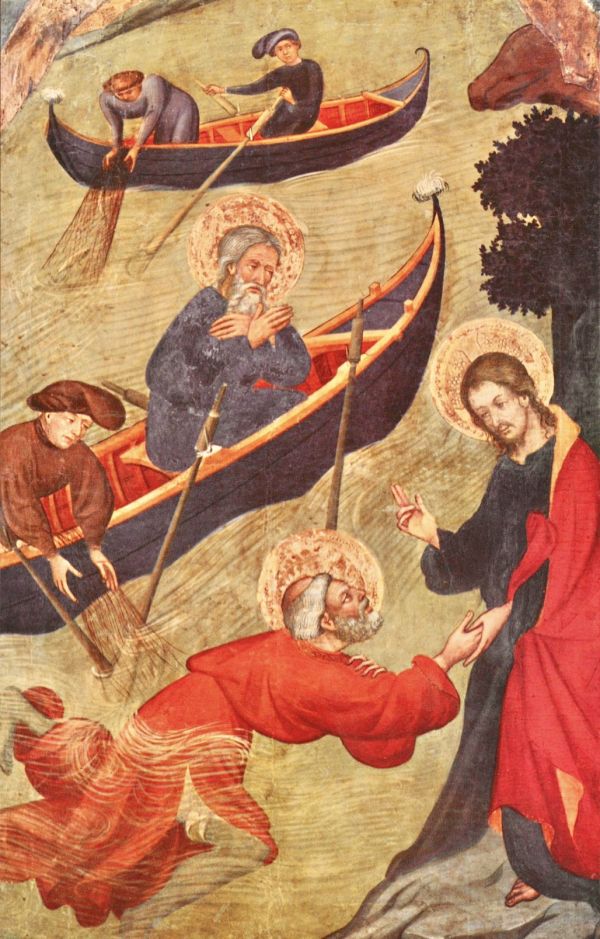(Jn 21:1-14)
The same sign of overfishing, in Lk 5:1-11, is even placed on the day when Jesus invites the first disciples to follow him to become "fishers" of men.
The prodigy of the Vocation expands the believer's journey in Christ and affects every experience we can have of the Risen One in our ordinary work - and what Mission we are entrusted with to experience him Alive.
The Church is not composed of phenomena, but of a stubborn, eager and insecure leader (Peter). Some are in and out (Thomas), others remain tied to the past (Nathanael), and there is no shortage of fanatics (the sons of Zebedee); plus, the anonymous (all of us).
Peter realises that before giving orders, it is he who must do and expose himself: if so, the others will decide spontaneously (v.3).
But without the torch of the Word, no results. Following Peter is not enough.
Here is Jesus: on the Shore of the ultimate condition He calls us and leads the way, guides the activity, and it’s finally Light - the Dawn.
The “net” must be cast on the «side right» (v.6), that is, on the good side!
To bring people up from the abyss of polluted waters and waves of death, we need to start and aim for the best in everyone, to bring out the good [that’s there, always].
Appeal for us.
Therefore Peter - each responsible of community - must have no preconceived notions, but take off the cassock of a group leader and put on the apron of a servant [v.7: the Greek verb is that of the ‘washing of feet’].
For work that gives results according to God (love), one must wear the same robe as Christ - the only badge: the garment of someone who doesn’t give orders, but receives them.
It is the trait of the authentic Church - nothing big: it doesn’t arrive on an ocean liner, but on a «little boat» [v.8 Greek text].
And it remains low in size: like a bit of yeast, to embrace anyone.
All this shapes a different awareness of inadequacy: the one in the Faith - only positive, because it understands the brethen. It recognizes them in the depths of itself, and knows how to justify resistance to the Announcement.
We are collaborators of the apron, to dialogue with those in need of recovery, in whatever vortex or peripheral condition they find themselves.
Therefore, «to shepherd» (vv. 15-17) means to precede and feed, not to command.
Those who “lead” must be a sign of a God who is neither fed up nor spiteful.
Lovable and inviting face of the One who is capable of surprising and putting Simon back on his feet as well. The chief apostle, who had been called to freedom and had chosen the condition of lackey [cf. Jn 21:9 with the «fire of embers» in Jn 18:18].
So the "enemy" of God is the pursuit of the ‘average life’. Mire where no one throws himself.
[A reflection for the scoutmaster reads: «Remember, scout leader: if you slow down, they stop; if you yield, they back off; if you sit down, they lie down. If you walk ahead, they will overtake you; if you give your hand, they will give their skin»].
Now the Message’s making one with our body.
(Friday between the Octave of Easter, April 25, 2025)












